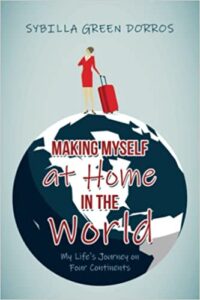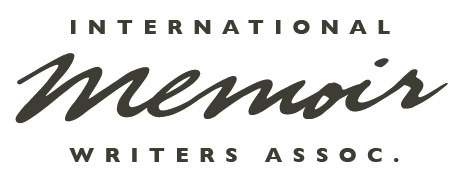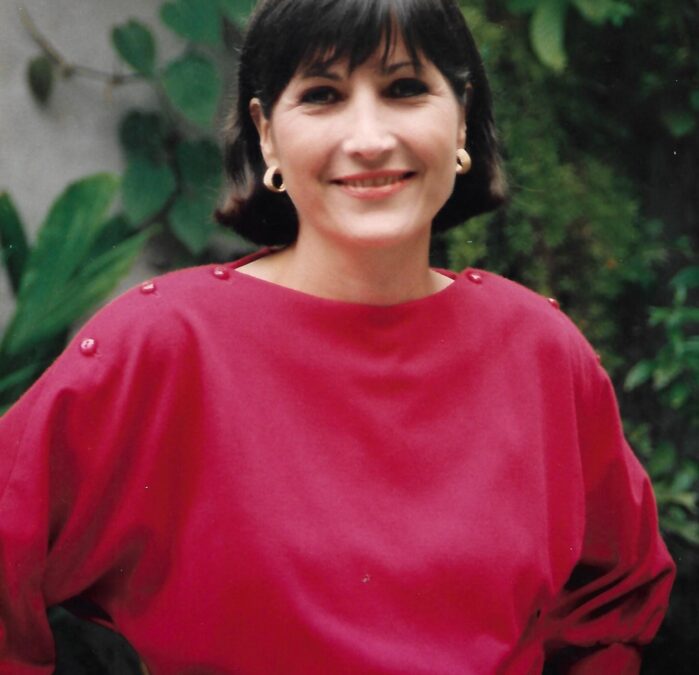International Memoir Writers Association would like to congratulate
2023 February Member of the Month…Sybilla Green Dorros!
Please take a minute to read Sybilla’s interview with IMWA Board Member Janet Hafner.
1. How did you first discover IMWA?
In January 2020, I started attending weekly memoir writing classes with Marni Freedman and Tracy J. Jones through San Diego Writers, Ink. I naively assumed I could learn everything I needed in the first six-week series (The Memoir Map), but I ended up attending the entire Certificate Program in Memoir Writing throughout 2020. Marni and Tracy encouraged all of us to attend the open meetings of the then SDMWA – and the rest is history! The monthly meetings of the IMWA helped me get through the worst of the pandemic: I looked forward to the informative and inspiring meetings and connecting, albeit via Zoom, with my fellow writers.
2. Have you always been a writer?
I started writing in the Philippines in the mid-1970s. I wrote more than 200 published articles in national magazines and newspapers. My first book was “A Lamaze Guide for the Philippines,” published in 1981. I then wrote and edited on a contract basis for international organizations in Switzerland. After returning to the U.S., I wrote professionally for nonprofit and healthcare organizations, primarily in marketing and fundraising. So, I have been a writer for most of my adult life, but always nonfiction, and often without a byline for my content in newsletters, brochures, websites, and on social media.
3. What impacts do you think writing classes and workshops have made on your writing?
I learned in my initial memoir writing class with Marni and Tracy that I was not actually writing a memoir (typically covering just a portion of a person’s life) but an autobiography from my birth to the present. Nevertheless, both rely on the same elements—character, dialogue, scene, voice, etc. After decades of professional writing, I knew how to write, but I often had difficulty translating my corporate style into a personal one. Through the classes with Marni and Tracy, I learned techniques that allowed me to express my emotions more compellingly. The workshops I attended gave me the courage to make myself more vulnerable. So many writers who presented had been through more harrowing experiences than mine. I figured if they could do it, I could too!
4. We’d love to hear about what you are presently writing.
Since my retirement in 2016 from the University of California (UCSD Health and UCLA Health), I have continued to write on a freelance basis for nonprofit and healthcare organizations, still primarily in marketing and fundraising.
5. Who are your favorite authors? Favorite memoirs?
I am a voracious reader. I always have at least two books going at the same time: One an audiobook that I listen to while I’m walking (an hour a day), and one print book that I read in the evenings before going to sleep. My favorite genre is historical fiction: I love to immerse myself in history, particularly in an exotic locale, say in China while enjoying a compelling story. Lisa See comes to mind. I read so many memoirs while I was writing my autobiography. One of my favorites was Jennifer Coburn’s “We’ll Always Have Paris.”
6. Any advice for new writers?
While I was at college, my English professor and faculty advisor, himself a published writer, continuously put me down and, based on the papers I wrote for his class, said I would never be a writer. It is true I never became a fiction writer, but I did depend on my nonfiction writing for the 50 years of my career. At the time he made those disparaging comments, I was too naïve to know better. I stopped writing for years afterward and, when I started back, wrote anonymous book reviews for my local library. Based on my experience, I would advise new writers to believe in themselves, tune out the naysayers, and seek out a supportive community of like-minded souls. Above all, be resolute in the pursuit of your passion!
7. Please tell us about your book.
My autobiography is recounted in chapters—one for each place I lived. Most of the locations are global. Four of them involved assignments with my family of origin: Paris, Léopoldville, Accra, and Casablanca. Two were on my own: Rome and my first stint in Geneva. The last two were in Manila and back in Geneva with my family by marriage. Each relocation—to disparate countries at different stages of my life—presented new sets of challenges. My book reveals how I tackled these challenges and how I felt—and continues to feel—at home almost anywhere but with nowhere to truly call home.
8. What have you learned in the process of writing this book?
It took me much longer to produce than I had expected—nearly the entire three years of the pandemic (2020 for the writing, 2021 for editing and revising, and 2022 for its publication). In 2016, I had self-published a book of family recipes, so I didn’t think it would be that difficult to do the same for my autobiography. However, I ended up going with a hybrid publisher (Author House) with more complications than I had anticipated. The process taught me patience, flexibility, and perseverance.
9. Please let us know how we can reach you.
Website: https://sybillagreendorros.org
Facebook: sybilla.g.dorros
Instagram: @sybillagreendorros
LinkedIn: Sybilla Green Dorros


